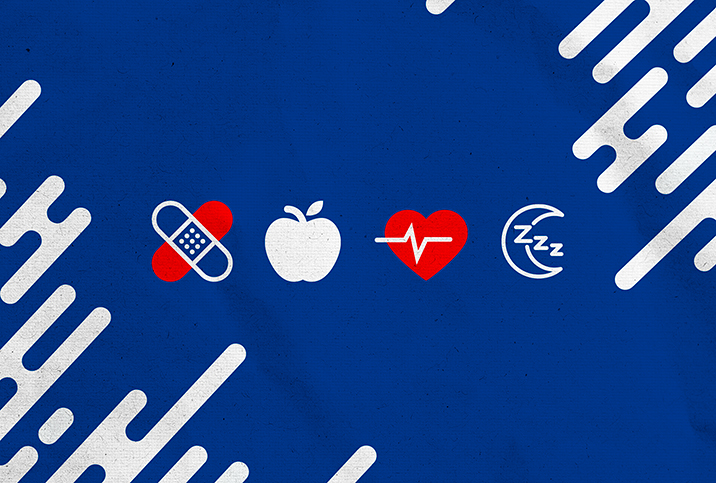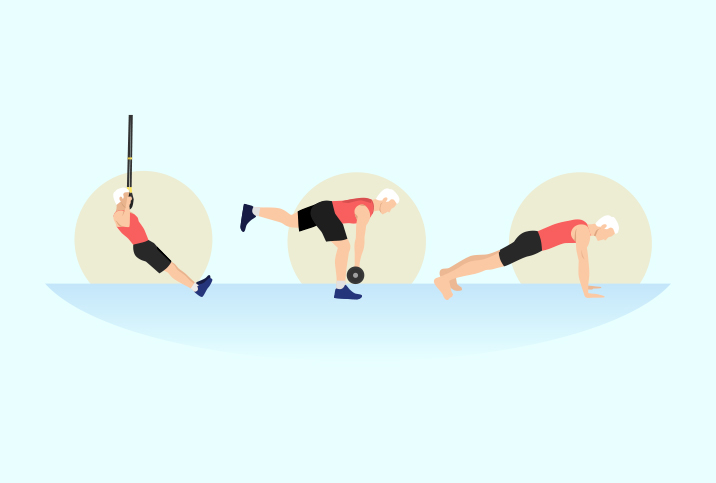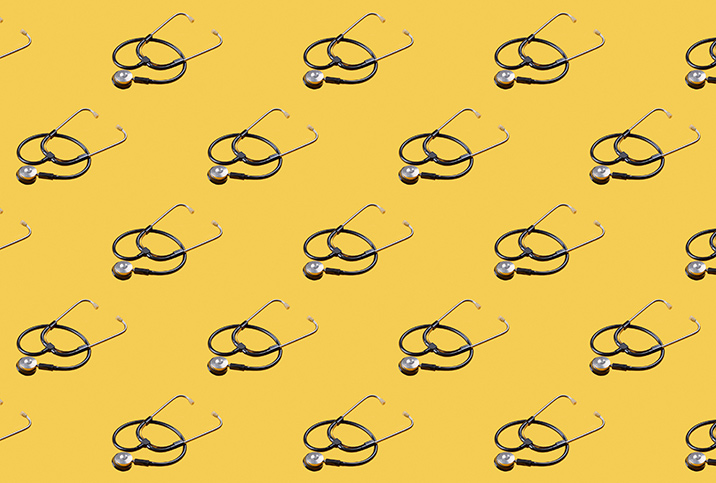Between the Pages: 'A Field Guide to Men's Health' Busts Common Myths

On a regular basis, men are bombarded with clickbait ads promising fast results. Think taglines like "Get lean quick and have better sex!" These ads typically take advantage of common health myths that men don't always know how to dispel, according to Jesse Mills, M.D.
To help men navigate the wilderness of misinformation and dubious claims, which take up a tremendous amount of space in men's health, Mills put his expertise into "A Field Guide to Men's Health: Eat Right, Stay Fit, Sleep Well and Have Great Sex—Forever." The book offers reasonable lifestyle modifications men can make to take control of their health. At its core, good men's health consists of eating less, moving more and sleeping more, Mills emphasized.
An associate clinical professor of urology, Mills serves as director of the Men's Clinic at the University of California, Los Angeles, fellowship director of the UCLA male reproductive medicine and surgery program, and director of UCLA Urology Santa Monica. He is also a medical consultant to the Los Angeles Dodgers and Los Angeles Lakers.
In this exclusive interview with Giddy, Mills discusses what inspired him to write this book, and why diet, exercise and better sleep are critical to sexual health.
Editor's note: This interview has been edited for length and clarity.
What inspired the idea for this book?
I've been fully devoted in my practice to just taking care of men since 2008. I had all this experience. The stories I would see tended to repeat themselves. Guys hit their 30s and their 40s and the wheels start to come off. They gained their freshman 15, which then turned into their midlife 30 or 40 pounds. Their sex drives are down, their erections aren't as good as they used to be and they're feeling winded easier; these all tie into sexual health.
At the core of the penis is a human being with a heart, lungs, kidneys, and whatever affects a guy's sexual health really can affect their cardiovascular health as well. Vice versa, if I can do something to improve a man's cardiovascular health through nutritional guidance, through exercise, stress reduction, through better sleep, then that's going to translate to better sex as well. It was such an easy thing for me to say, "Gosh, we have so many ways to make guys better." More importantly, we have so many ways for guys to make themselves better.
I've yet to have seen a book that forms a dialogue between patient and physician that isn't trying to sell them on something. It's not saying you've got to do this diet, you've got to take this supplement or you've got to do this workout, because the truth is you can do anything you want as long as you're doing something. That's where I think people get lost. It gets too complicated and they end up giving up.
Why are eating less, moving more and sleeping better the pillars of great health?
Stop eating any refined sugars. Stop eating processed foods. Buy a heart rate monitor so when you're moving, you're not lying to yourself, and so you're not the guy at the gym on his Instagram and not actually using the machine. I've got to wait for them to upload their latest thirst trap. I want their heart rate up in the 140s to 150s and sustain it for 20 to 30 minutes a day.
Sleep is a harder elevator pitch because it's easy for me to tell people to sleep more, but how to do it varies for people. Some people do better if they don't work out at night. Some people do better if they have a really vigorous workout in the evening so they're more exhausted and they sleep better. Some people get too wired up if they exercise too close to bedtime. It's individualizing the therapy and being willing to experiment.
There's so much, "You have to do it this way" or "Get all your goals through keto" or "Get all your goals through high-intensity workouts." It doesn't matter. If you walk an hour a day and you sleep better, then that's great, that works for you. You can do a 20-minute workout and get a better sleep, then that works for you, too. There are so many different ways for us to optimize your health and nutrition.
How do those three pillars translate to having great sex?
We know men who stay lean get better pelvic blood flow. You can accomplish that through nutrition and through good exercise. It decreases your blood pressure, it decreases your cholesterol levels, it decreases your blood glucose level, and those are some of the big players in why men lose erections in the United States. Poor blood sugar control leads to diabetes, high cholesterol and high blood pressure. That's your "eat and move."
Sleep is incredibly important to reduce stress hormones and improve pituitary gland function. The pituitary is what controls testosterone production. Men who are chronically poor sleepers will have very low testosterone. If you look at guys who have sleep apnea, [that condition] is often caused by obesity but can also be caused by something in their brain chemistry is off or something anatomically is off. Their tonsils are too big, for example. That also will lower testosterone levels. If you can correct that and you're getting that good six to eight hours of sleep, you can really improve your testosterone level, which will then lead to higher sex drive and better erections.
And they're all related. Sometimes, if you aren't going to eat well, then at least get a good night's sleep. If you're not going to be able to exercise, then don't eat so much that day. They're all interchangeable to the point where you can take a couple that you know you're going to be good with and then let the others suffer.
You write that if the reader is to take one message, it's 'all diets will fail.' Why are diets ineffective long term?
In general, we are products of our culture. If you grow up in a household that celebrates food, that's wonderful, it's good for our soul, our well-being and our communion with our family. But if our sole focus is that and it's not necessarily healthy eating, then you know as you're gaining weight and that you need to cut back on carbohydrates. But you're going to miss the family reunion or Sunday dinner. Then that's a really difficult thing. You're basically pinning your health against your culture.
Any time you do a diet, you're basically saying I need to change this. I have to completely eliminate carbohydrates or completely eliminate salt or completely do this or completely do that, and then you're changing your culture. If you do that, you tend to alienate yourself and not necessarily bring along the support of your family and people that are a big part of your friend circle to do that.
Also, it's really hard to comply with most diets. Any diet is going to take away something. If you know you cannot give up steak, then you can't do a low-fat diet. If you know you can't give up sugar or potato chips, then there's no way you can ever be compliant with a keto diet long term. Whatever you do, you'll be on it for long enough to lose weight but then you'll fall right back into your old habits.
Why do you think your book is accessible to all men?
I think because it's so deceptively simple. You can open the page anywhere and find something that pertains to you. The fertility section alone is only going to be germane for guys who are actively trying to conceive. At the same token, it falls back on fundamentals. We know guys who don't sleep tend to have poor sperm quality. We know guys who are obese tend to have poor sperm quality. We know guys who don't follow a healthy whole-food diet tend to have poor sperm quality.
Even if you open to the infertility chapter, you're going to get the same message, which is to eat, move and sleep. You'll improve your sperm counts but, oh, by the way, that's also going to improve your cardiovascular health and your sexual health. It's sort of this rinse, repeat, rinse, repeat. But the message is so pure and it works.


















